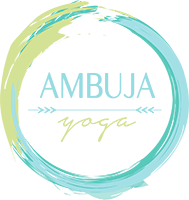What is dinacharya?
Dinacharya is the daily ritual to live a healthy and balanced life according to the ancient tradition of Ayurveda. Ayurveda is yoga’s sister science. The two traditions have been practiced side-by-side for thousands of years. Yoga supports many of the functions of Ayurveda and Ayurveda supports many of the functions of yoga, so the two are often intertwined.
Most humans, especially in the United States, don’t have time to practice the full dinacharya practice… it’s just not practical with jobs, kids, etc. I’d rather not bore you with too much information, so here is a list of a fairly attainable morning practice of dinacharya…. but it’s still 13 items!!! Okay, but lets be honest you most likely at least do 5 of them already without thinking about it.
1. Rise early before the sun.
I’m not going to lie the morning hours are beautiful and peaceful, but I am kapha and getting out of bed in the morning is often the hardest part of my day. No joke. At least one day a week though I wake up before 5:00 am and I’m probably better for it.All my kaphas out there…. you understand how hard it is to get out of bed early (early I mean 6-7 am), but if you can stomach it just try to get up at 4:30 am or even 5 am before the first kapha cycle of day begins (first cycle: 6-10am; second cycle 6-10pm). According to Dr. Vasant Lad, the leading Ayurvedic doctor in the United States, “It is good to wake up before the sun rises, when there are loving (sattvic) qualities in nature that bring peace of mind and freshness to the senses. Sunrise varies according to the seasons, but on average vata people should get up about 6 a.m., pitta people by 5.30 a.m., and kapha by 4.30 a.m. Right after waking, look at your hands for a few moments, then gently move them over your face and chest down to the waist. This cleans the aura.”
2. Drink a large glass of warm lemon water.
Well this one is easy. Slice up a lemon and squeeze it into some warm water. Drink your lemon water before anything else goes in your body (including coffee). Warm lemon water helps jump start your metabolism and digestion and also flushes the kidneys.
3. Wash face and clear out sinuses with neti pot.
Likely you already wash your face in the morning, but using a neti pot might be new to you. To be honest I don’t neti pot everyday, but I do use it when I feel congested, when I am experiencing allergy symptoms, or suspect that I might be getting sick. I also will use my neti pot if I plan on having an extensive pranayama session. Want to try out using a neti pot? Watch this Web MD video first (also, please feel free to contact me if you have questions).
4. Scrape tongue.
Yep, give it a good scrape before you brush your teeth. The build up of ama (toxins) in the body is what causes that white filmy layer on the tongue. The practice of tongue scraping takes just a couple of seconds and helps improve overall oral health. You can purchase tongue scrapers at most natural food stores like Whole Foods or Natural Grocers.
5. Brush teeth.
Brush your teeth. Please tell me you’re already doing this!
6. Evacuate your bowels.
It’s time to go number 2. The warm lemon water should assist with emptying your bowels. In a perfect world you would relieve yourself within one hour of getting out of bed. When we are unable to evacuate our bowels a build up of toxins within the body can occur. Anyone else get headaches when the plumbing isn’t working right? I do… and it’s terrible. If the whole morning routine is new to you it may take a couple of days to get into the rhythm. Don’t stress.
7. 10-20 minutes of yoga.
Once you’ve had your bowel movement begin your yoga practice. A few simple stretches and movements to the body can help “clear out the cobwebs” that built up overnight and improve mood and overall wellbeing.
8. 5-10 minutes of pranayama or breathing exercises.
A very simple pranayama exercise would be 1:1 ratio breathing. An example would be inhale for 4 counts and exhale for 4 counts. Another option would be to practice nadi shodana (alternate nostril breathing). If you will be venturing into more stimulating/challenging pranayama exercises please consult with your yoga/pranayama teacher. You may even want to consult with your doctor.
9. 5-15 minutes of meditation.
I recommend practicing meditation seated and not lying down. Find a comfortable seat in a comfortable quiet place. A simple meditation would be to follow the breath as it flows in and out of your body. There are also plenty of meditation apps that you can use for a guided practice.
10. 5-10 minute abhyanga.
Abhyanga, the self massage, is the best part of dinacharya. Use a warmed sesame or coconut oil and massage the limbs in long strokes, the joints and abdomen in circular strokes. Don’t forget your back, scalp and face. (I have sensitive skin, so I use a different blend on my face than on my body.)
11. 10-20 minute oil pulling.
Oil pulling might take a little time to get used to. Oil pulling clears out any residual bacterial buildup in the mouth. It improves breath and overall dental health. Use a tablespoon or so of coconut oil and swish it around in your mouth for 10-20 minutes. Spit it out when you’re finished. Do not swallow the oil. You can oil pull while you’re doing your self massage or while showering to save time.
12. Shower or bathe.
Yep, hop in the shower or bath and you’re good to go.
13. Eat breakfast.
Eat a healthy, balanced breakfast.
I’d love to hear about your morning ritual. What do you do to make sure your day gets started on the right foot?
Love and Light,
Autumn

 Ambuja Yoga
Ambuja Yoga 
